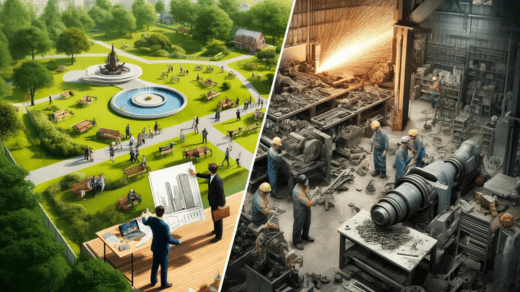In the bustling landscape of urbanization, the importance of green spaces cannot be overstated. Parks serve as oases amidst the concrete jungle, providing vital breathing room for communities. However, the task of park development is far from simple. It requires meticulous planning, strategic implementation, and a deep understanding of both the environment and the community’s needs. This is where park development consulting steps in, offering expertise to transform visions into tangible green havens. In this article, we delve into the realm of park development consulting, exploring its significance, processes, and impact.
Understanding Park Development Consulting
Park development consulting is a specialized service aimed at optimizing the creation and maintenance of public parks. It encompasses a range of activities, from initial concept design to ongoing management strategies. Consultants in this field are equipped with multidisciplinary skills, including landscape architecture, environmental science, urban planning, and community engagement.
The Significance of Green Spaces
Before delving into the intricacies of park development consulting, it’s crucial to underscore the significance of green spaces in urban environments. Parks offer numerous benefits, ranging from environmental to social and economic. They mitigate the urban heat island effect, improve air quality, promote biodiversity, and contribute to climate resilience. Moreover, parks serve as focal points for recreation, leisure activities, cultural events, and community gatherings, fostering social cohesion and well-being. Economically, well-designed parks enhance property values and attract investment, driving local economies forward.
The Role of Park Development Consultants
Park development consultants play a pivotal role in bridging the gap between vision and reality. Their expertise lies in translating conceptual ideas into feasible and sustainable park designs. This process entails several key steps:
- Needs Assessment: Consultants conduct comprehensive assessments to understand the unique needs and aspirations of the community. This involves gathering input through surveys, workshops, and stakeholder consultations.
- Site Analysis: A thorough analysis of the proposed site is conducted to identify opportunities and constraints. Factors such as topography, soil conditions, existing vegetation, and surrounding infrastructure are carefully evaluated.
- Conceptual Design: Based on the findings from the needs assessment and site analysis, consultants develop conceptual designs that reflect the community’s preferences and the site’s characteristics. These designs encompass layout plans, amenities, landscaping elements, and thematic features.
- Stakeholder Engagement: Effective communication and collaboration with stakeholders are vital throughout the development process. Consultants facilitate dialogue between various stakeholders, including local residents, government agencies, non-profit organizations, and advocacy groups.
- Environmental Sustainability: Park development consultants prioritize environmental sustainability, integrating green infrastructure, water management solutions, native plantings, and eco-friendly materials into their designs.
- Accessibility and Inclusivity: Ensuring accessibility and inclusivity is a core principle of park development. Consultants strive to create spaces that are welcoming and accessible to people of all ages, abilities, and backgrounds.
- Long-Term Management: Beyond the design phase, consultants assist in developing management plans and maintenance strategies to ensure the park’s longevity and vitality. This includes considerations for programming, operations, budgeting, and community stewardship.
In the realm of park development consulting, the term “grinding” can be interpreted in various contexts. It may refer to the meticulous attention to detail and perseverance required to overcome challenges and achieve project objectives. It could also allude to the process of refining ideas and designs through iterative feedback loops, gradually honing them into polished outcomes. Furthermore, “grinding” may symbolize the commitment of consultants to work tirelessly in pursuit of creating vibrant, sustainable, and inclusive green spaces for communities to enjoy.
Conclusion
Park development consulting plays a crucial role in shaping the urban landscape, enriching communities, and fostering sustainability. By harnessing interdisciplinary expertise, engaging stakeholders, and prioritizing environmental stewardship, consultants transform vacant lots into vibrant parks, enriching the fabric of cities. As we navigate the complexities of urbanization, the importance of green spaces and the expertise of park development consultants will only continue to grow, ensuring that our cities remain livable, resilient, and connected to nature.

